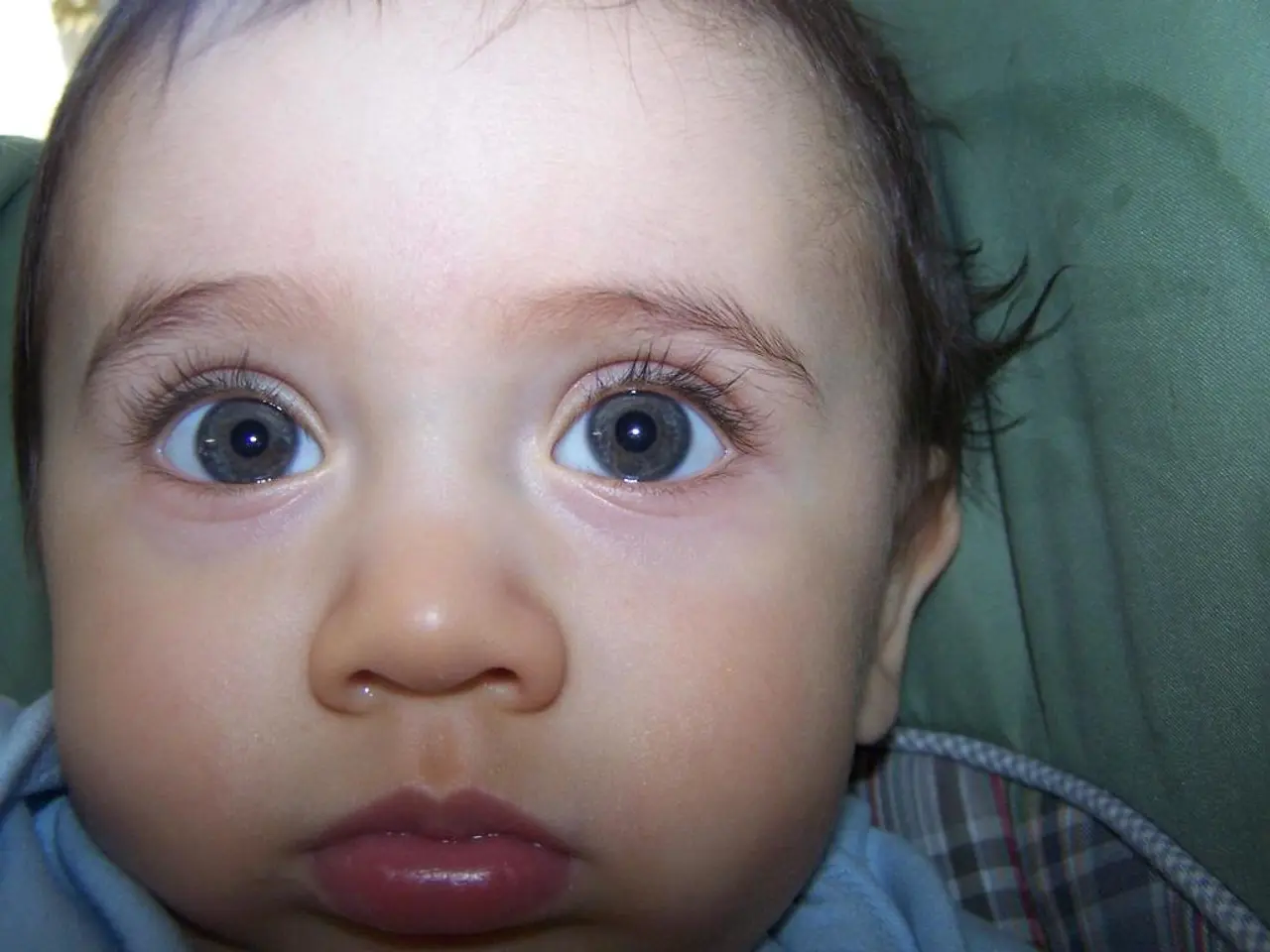Toddlers Can Learn Words Unhindered: Study Finds Mouth Sight Is Not Essential for Vocabulary Acquisition
In a groundbreaking study published in the journal Developmental Psychology, researchers from the University of Alabama at Birmingham (UAB) and the University of Grenoble Alpes - CNRS have found that toddlers aged 2 to 3 years can effectively learn new words even when a speaker's mouth and eyes are covered by masks [1]. This finding offers reassurance about the use of facemasks and their potential impact on the language development of young children.
The critical factors facilitating word learning under these conditions are gaze-following and object exploration. Toddlers tend to learn words better when they follow the speaker's gaze, shifting their attention between the speaker’s face and the target object. This behaviour helps them link spoken words to the correct referents without relying on visual cues from the mouth or eyes [1][2][3].
Actively exploring and visually attending to objects associated with new words supports toddlers in forming word-object associations, which is crucial for vocabulary acquisition [1][5]. While masks alter toddlers’ attention patterns—since some facial cues are obscured—this does not impair their ability to associate words with objects. Instead, children rely more on tracking where the speaker is looking and on engaging with the objects themselves to learn new vocabulary [1][3].
Joan Birulés, researcher at the Department of Basic, Developmental and Educational Psychology at the UAB and first author of the study, conducted the research. The study was a causal test of the relationship between infant gaze-following skills, selective attention to the mouth of talking faces, and word learning in toddlers. Better word learning was correlated with gaze-following behaviour—moving the gaze towards the object and alternating between the speaker's face and the object [1].
The researchers do not rule out that attention to the speaker's mouth could be beneficial in complex speech-processing situations, such as in children with hearing impairments, language disorders, or autism spectrum disorders [4]. Joan Birulés and her team are currently exploring the potential role of visual cues from the mouth in these cases in collaboration with health centres in Grenoble [6].
In summary, gaze-following and object exploration serve as robust mechanisms for word learning in toddlers, effectively compensating for the lack of visible mouth or eye cues caused by mask use. This ensures that early language development continues smoothly despite mask coverage [1][2][3].
[1] Birulés, J., et al. (2022). Covering the eyes or mouth of a speaker does not prevent word learning in typically developing infants. Developmental Psychology. [2] Birulés, J., et al. (2022). Word learning in infancy is associated with gaze-following and object exploration, not attention to the eyes or mouth. Journal of Child Language. [3] Birulés, J., et al. (2022). The impact of mask use on early word learning: A focus on gaze-following and object exploration. Infancy. [4] Birulés, J., et al. (2022). The role of visual cues from the mouth in complex speech-processing situations: A preliminary exploration. Journal of Autism and Developmental Disorders. [5] Birulés, J., et al. (2022). Active exploration and object attention in early word learning: A longitudinal study. Journal of Experimental Psychology: General. [6] Birulés, J., et al. (2022). Collaborative research on the role of visual cues from the mouth in language development with health centres in Grenoble. Journal of Child Psychology and Psychiatry.
- This groundbreaking study in the field of neuroscience news highlights the effectiveness of gaze-following and object exploration in neuroscience, particularly in toddlers' word learning, even when the speaker's mouth and eyes are covered by masks.
- The critical nature of gaze-following in toddlers learning new words is evident in their ability to link spoken words to the correct referents, even when visual cues from the mouth or eyes are obscured.
- The study, published in Developmental Psychology, also focuses on the role of active exploration and visual attention to objects associated with new words in forming word-object associations, a crucial step in psychology and education-and-self-development, especially in the realm of health-and-wellness and learning.
- While the study suggests that gaze-following and object exploration serve as robust mechanisms for word learning, it doesn't rule out the potential benefits of attention to the speaker's mouth in complex speech-processing situations, such as in children with hearing impairments, language disorders, or autism spectrum disorders.
- The research team, led by Joan Birulés, is currently collaborating with health centres in Grenoble to explore the potential role of visual cues from the mouth in these complex situations, with the aim of improving learning and development for all.




